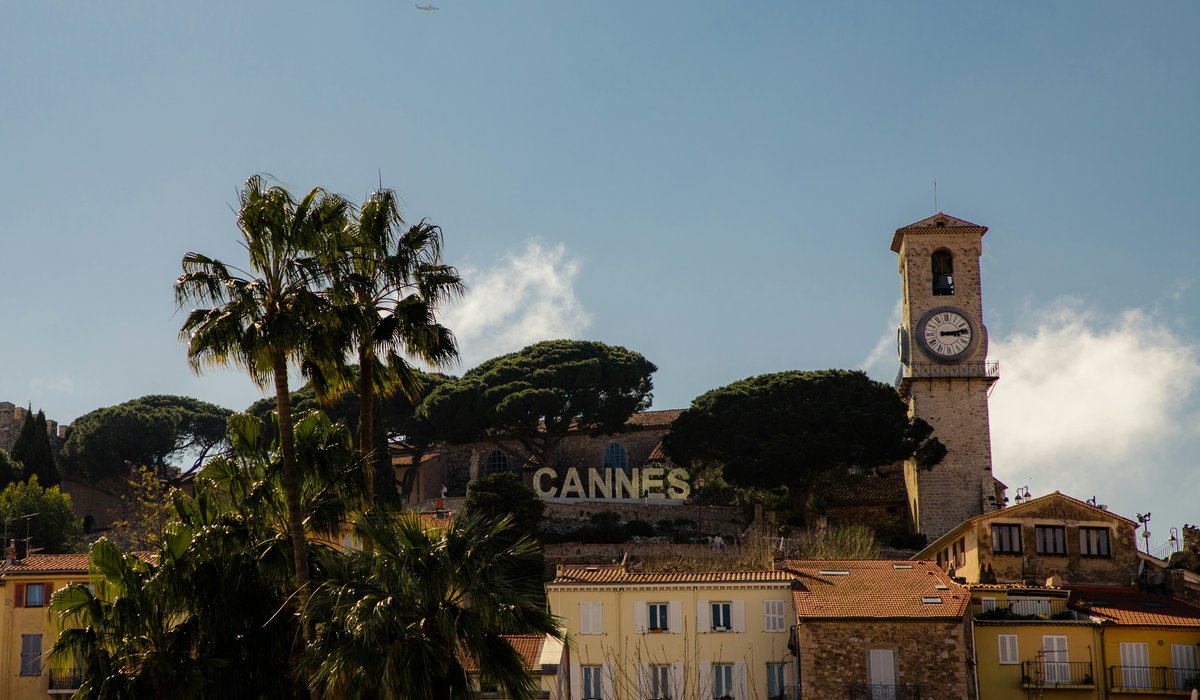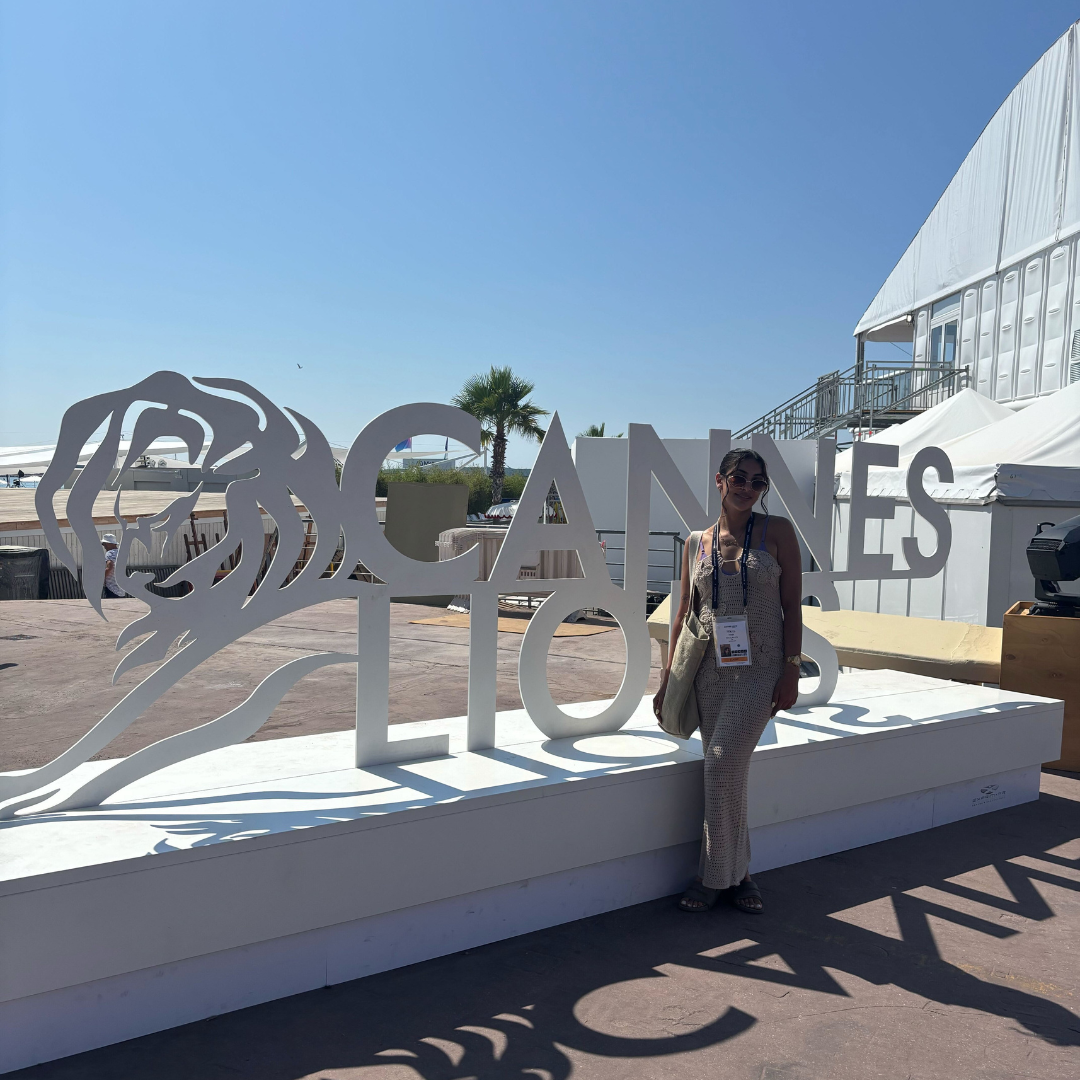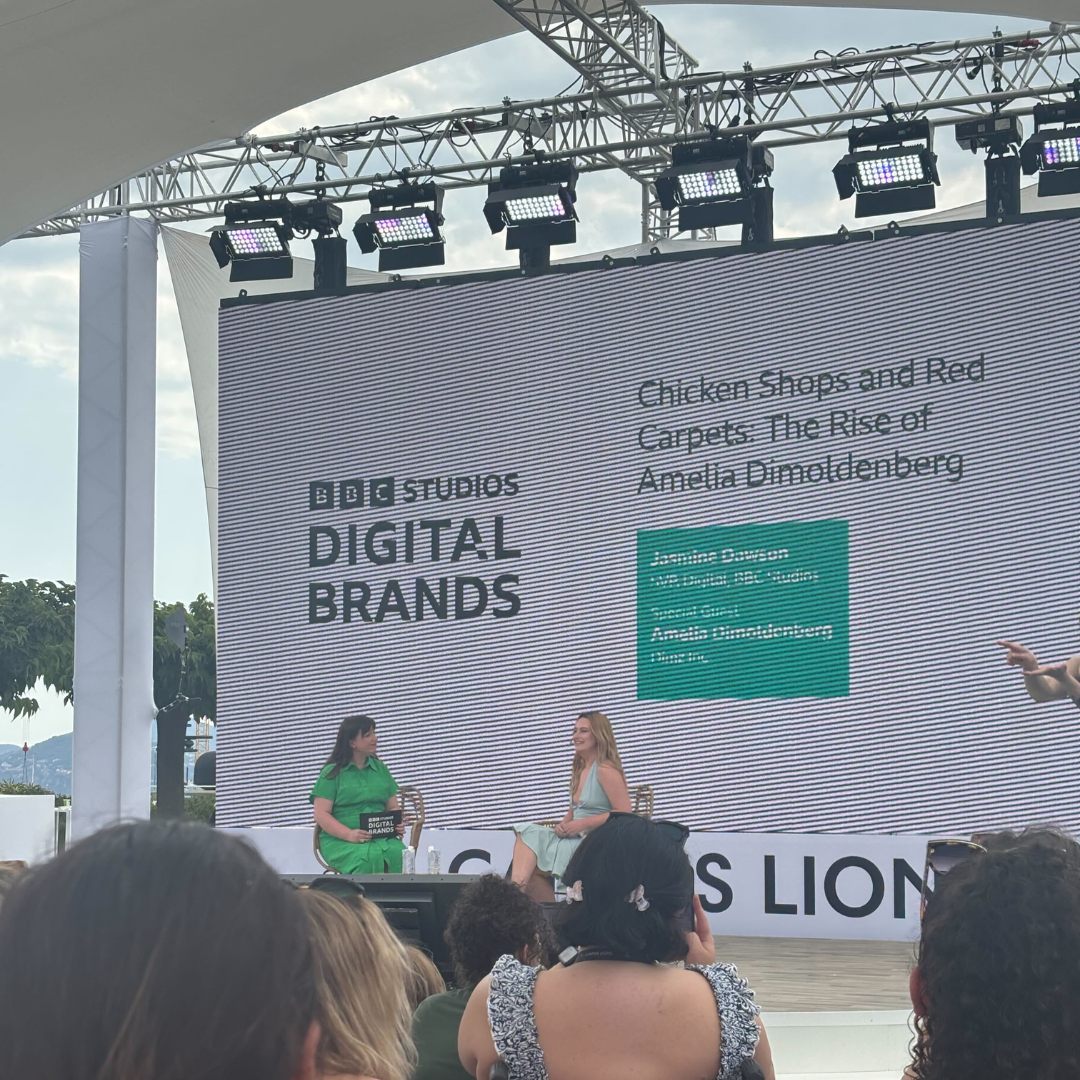Getting more families to attend your open days

Strategic digital campaigns using Performance Max can significantly increase open day attendance by…

From human-led creativity to emotional storytelling and rooftop connection over rosé, Cannes Lions 2025 reminded me why our industry is still so rooted in people. Here are the key takeaways that stuck with me long after it ended.
Cannes Lions was an inspiring (and sweaty) week of creative talks, high-profile brand moments and unforgettable moments. I came back feeling optimistic and with a boost of enthusiasm around where our industry is headed - not particularly due to new tech or upcoming trends, but more the reaffirmation that human connection is at the core of everything we do. So, let me give you a breakdown of some of the talks I was so fortunate to attend, and my takeaways from them:
“Good news: AI won’t kill advertising. Bad news: it won’t save it, either.”
Apple’s keynote was a fitting opener to Cannes Lions - confident, calm, and human-first. Their key message: logic doesn’t always lead to connection, the most powerful work comes from emotion, intuition and storytelling - things algorithms can’t replicate. It isn’t about ignoring technology, but remembering that our edge as creatives lies in what makes us flawed, emotional and wonderfully unpredictable.
Apple touched on everything from accessibility to ethics - such as how they’ve developed AirPods that can also double as hearing aids, helping to destigmatise assistive technology. Their holiday ad showcasing this became their most watched ever - showcasing the impact behind emotional resonance.
Finally, they reinforced their stance on privacy, reframing it not as a policy, nor a feature, but a deeply personal human requirement which we all deserve.
This session was truly a celebration of bold thinking, AI reality checks and big ‘F%@! IT’ energy. Kicking off with the powerful declaration that ‘Now is the most exciting time to be alive’, the tone was set for a humorous, sharp and engaging discussion. There was no doom and gloom around AI, just a collective shrug that AI is only taking/making easier the time-consuming jobs that we didn’t want to do anyway.
Pinterest did a stand-out experiment - Human vs AI. It involved testing and comparing both human- and AI-written manifestos for Pinterest and not only did people prefer the human version, but AI did too - 10 out of 10 times!. Because originality, humour and quirks still belong to us - and this cannot be taken, no matter how much AI learns to replicate us, as it will never own a completely unique, first-time thought.
So, AI can see the value in humans, and we should too! The fear of AI ‘killing’ creativity was dismantled throughout the session using a clever analogy: when the camera was invented, it was said that paintings would die. And then when the camera phone was invented, people said that photography was a goner. Spoiler alert: neither art form disappeared - they evolved.
Finally came Grey Brazil’s stunning work for Corona: ‘Celebrating 100 years under the sun’. A spectacular campaign built on a simple idea: buying land to do absolutely nothing with. No buildings. No resorts. Just sunshine and nature, protected for future generations. It’s no longer just a marketing stunt - the idea has now been demanded by the public and is being rolled out across beaches in Brazil, with the aim to protect local suntraps.
The above closed the session with an important lesson in creative confidence - the importance of how you frame bold ideas. For example, if someone comes out of a changing room and you say ‘Wow, brave outfit.’ There’s a high chance they’ll never wear it again… But, said in a different way such as ‘That’s so different to what you normally wear, but it's really working.’ You may give them the confidence to try it. In short, it's often not reassurance people need, but the right kind of encouragement. This talk was less about trends and more about trust. Trust in humans, ideas, gut instinct. A reminder that if we all lean into our own creativity instead of just fearing the future, we might shape something totally new altogether.

In a festival of creativity, Gurinder Chadha brought the heart. Best known for the hit movie ‘Bend it like Beckham’ (BILB), Gurinder’s talk was less of a lecture and more of a reminder why we tell stories in the first place. Her session focused on representation, family and cultural identity (all matters close to me). One fact that blew my mind was learning that ‘BILB’ is the only film to be distributed in every country in the world, including North Korea! A powerful testament to the universality of its message, and proof that stories rooted in culture and specificity can still achieve global reach.
Gurinder spoke about the intention behind the film. Humanising a British-Asian family at a time when, post-9/11, Sikh and South Asian communities were being misunderstood or misrepresented. Her goal was simple: to show a normal household, with all the love, awkwardness, laughter and tension that comes with it. “Storytelling should reach out into your heart and make you feel heard, and alive.”
I found this session a much-needed shift in energy from the AI and trends, speaking to us on an authentic and personal level about how storytelling is how we make sense of ourselves, connect and fight invisibility, using stories over stats.
With over 50% of Gen Z identifying as neurodivergent, it’s no longer a niche conversation. Yet the industry continues to create campaigns and cultures built around neurotypical behaviours. A powerful example of an advert breaking the mould was a Vanish ad following a young autistic girl and the comfort she found in her hoodie, which was recognised as an inclusive example and is tied to Havas’s broader Neuroverse initiative.
This session felt like a break from the usual Cannes programming. No slides, no brand strategy, just honest, funny and refreshingly self-aware conversation about finding success on your own terms.
Amelia Dimoldenberg took us through her journey from a youth club in North West London to sitting across from global A-listers on her mega-popular YouTube show, Chicken Shop Date. Starting as a rejected column idea, it’s now a viral sensation, but this didn’t happen overnight - it took 11 years to get to where she is now.
Her whole premise was that awkward, and different, is good. Amelia’s brand is built on showing the uncomfortable and deadpan moments that most presenters would edit out. She spoke about how growing up, she loved the idea of the job she is now in but would never see any presenters who were like her. Instead of seeing that as a limitation, she simply saw it as a gap in the market, and filled that gap by just being herself and showing personalities in a more awkward, weird way.

One of her key reflections was around how she primarily makes content with her sister and her close friends in mind, and whether they’d find it funny or like it. She believes this type of approach ensures you remain true to yourself because as soon as you start making content for the masses, you lose your personal touch. The key takeaway was this: ‘Don’t try to appeal to everybody. Start by trying to appeal to the people you care most about.’
With success comes challenges familiar to all of us. She admitted to battling imposter syndrome and feeling more pressure than ever to keep her audience happy, making her more hesitant to experiment. When you’ve worked so hard and for so long to build something, taking risks feels, well, risky.
Amelia keeps Chicken Shop Date free from brand affiliations, and reserves this for her personal socials only - preserving the integrity of the show. When asked what it’s like to be the one in control, she didn’t hold back:
“I did everything - venues, guests, script, marketing - and this gave me full power… because I didn’t have a man telling me no.” MIC DROP!
This session wasn’t about scale, strategy or tech - it was about gut instinct, creative clarity and doing what you love until the world pays attention to you.
This talk was a well-timed reality check making one thing clear: brand building is not a luxury. It’s a necessity. In an age of hyper-targeted performance ads and short-term wins, the speakers warned against getting hooked on short-termism. The temptation is always to focus all energy and budget on immediate sales, but that approach leaves little room for building the kind of emotional connection that pays off long-term.
As a marketer, you have two jobs:
Future demand comes from brand thinking - focus on values, behaviour and identity - not just what you say, but how you act. Tracksuit offered a powerful data-backed insight: brands that entertain are growing faster. This means tapping into humour, humanity and storytelling, echoing what Gurinder Chadha said earlier in the week around emotional connection.
Depop’s story stood out. As a business competing against high-street giants with massive budgets, outspending wasn’t an option. Their early investment in brand - not just in marketing, but in team culture, creative strategy and community values is now proving to have paid off, with a lower ad spend than their competitors but whilst still seeing more growth.
“A brand image is more than marketing. It’s hiring, culture, values. It’s how people feel working for you - and what they say about you when they leave.”
This was definitely one of my favourite sessions, starting off with some of the most viral hits and personalities YouTube has seen over the last 20 years. I was immediately hit with nostalgia and the emotional connection I’ve been discussing as a theme throughout.
Starting with some numbers:
The point: these days, memes, music, spin-offs - one viral video can launch an entire creative ecosystem. YouTube’s core message was that it leaves creators in control, with no need to wait for green lights or big budgets. They can build, test and publish on their own terms, and in their own language. Literally.
With AutoDubbing now live in 20 languages, creators can instantly open up their work to global audiences. The accessibility implications are huge, not just for viewers, but for creators in non-English speaking regions looking to scale without compromise.
They also introduced several new tools that show just how far things have come, boasting impressive AI capabilities for video thumbnails, visual tools, prompting new ideas and stitching together content - the list goes on.
There were some stand out examples of YouTube success. One creator, Brandon Bawn, uploaded a new video every single day during lockdown and his consistency turned into an audience, which turned into a business - now running his own creative agency.
There was also a beautiful story about a filmmaking group in Sierra Leone, who shot and uploaded a short film, catching the attention of Idris Elba, who reached out directly. Creative power doesn’t sit in production houses anymore, it’s everywhere, and YouTube gives it reach.
I did leave the session with mixed feelings, particularly around the AI-generated content. Of course the features are impressive, but I’d hope that people still focus on authenticity within their videos rather than introducing too much synthetic touch. YouTube did offer a counterpoint to this concern: It’s still storytelling, still imagination, just with the barriers removed between what we think of, and what we can create. Only time will tell!
To summarise, YouTube is no longer just a platform, it’s a creative universe. The last twenty years have been transformative and I cannot wait to see what the next twenty bring.
The above were the talks that really stuck with me out of everything I saw at Cannes Lions. Not because they were all the loudest or the most hyped, but because they left me thinking about creativity, inclusion, future audiences and how / why it is important to build something that lasts.
Some common themes emerged:
Honestly, yes, some of my highlights did happen away from the stages. On the terrace, playing brand games or wandering around exploring the premises - but it wasn’t only fun - it also reminded me why we do things like this, and that is because our industry is about people.
We use our creativity to help brands make connections. Whether it's nationwide advertising or local PR, we're experts in getting businesses noticed for the right reasons. Let's discuss your next project
Get in touch